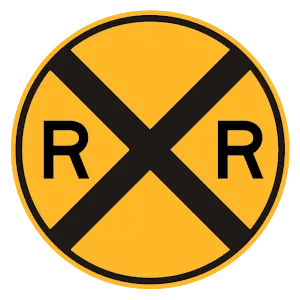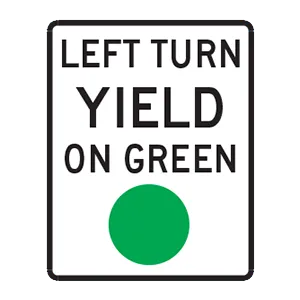Motorcycle Test | License NJ 2026 | FREE Online Practice! #14 Page 2 of 7
Take this FREE motorcycle test (license in NJ 2026) to check your knowledge of the road rules. To improve your results, download a motorcycle handbook online, study theory, and practice for free on our website. Still worried about how to get a motorcycle license in New Jersey in 2026? Check our website for more sample tests, train as much as possible, and boost your grades!
8 . This sign is a warning that you are approaching:

This sign indicates that you are approaching a railroad crossing.
9 . Common drugs, such as cold tablets:
Almost all drugs, including over-the-counter medications, have the potential to impact the abilities you need to ride safely. Make sure you understand the side effects of any drug before combining it with riding.
10 . When passing parked vehicles, motorcycle riders should be especially cautious of:
When passing parked vehicles, use caution. You may encounter vehicles pulling away from the curb or leaving parking spaces.
11 . This sign means:

Regulation signs regulate traffic speed and movement, displaying rules which drivers must obey. This regulation sign indicates that drivers turning left at a green light must yield to oncoming traffic and may complete the turn when it is safe to do so.
12 . Of the following, which clothing item will not reduce injuries in a crash?
To reduce the risk of injury, riders should wear a helmet, eye protection, heavy shoes or boots, full-length pants, a jacket, and full-fingered gloves. Clothing should be made of durable materials to best protect the wearer.
13 . Which of the following surfaces is unlikely to provide poor traction for motorcyclists?
A number of surfaces can provide poor traction for tires. Wet pavement; roads covered in loose gravel or sand; muddy, snowy, or icy areas; painted lane markings; and metal covers and plates in the road can be more hazardous for a motorcyclist than dry pavement.
14 . As a motorcycle operator, you can help others see you by:
To increase your chances of being seen, wear brightly-colored clothing, use your headlight at all times, and use your turn signals.
See the exact questions that will be on the 2026 New Jersey DMV exam.
99.2% of people who use the cheat sheet pass the FIRST TIME
Jeneen was tired of paying $5/gallon. She got herself a scooter that required the motorcycle license. She studyed the motorcycle test cheat sheet and passed her test the next day!
Christopher tells us how he knew nothing prior to obtaining the motorcycle study guide, and he only got one question wrong because he clicked on the wrong answer by mistake.



